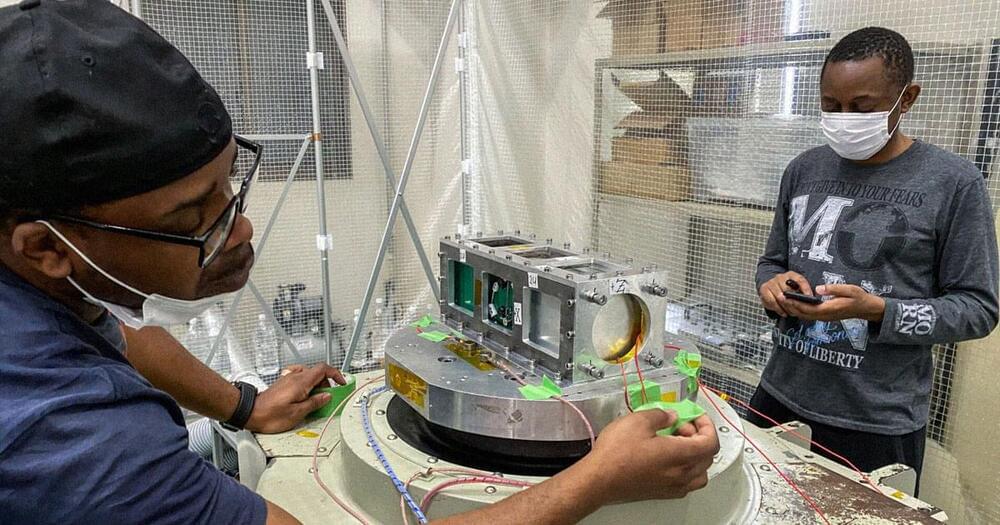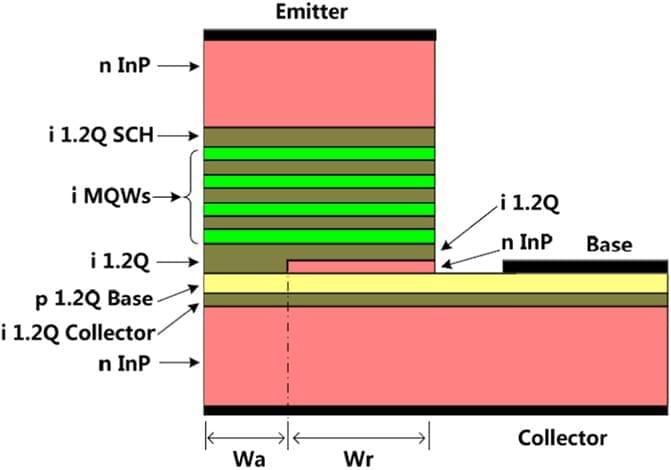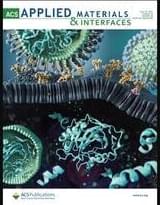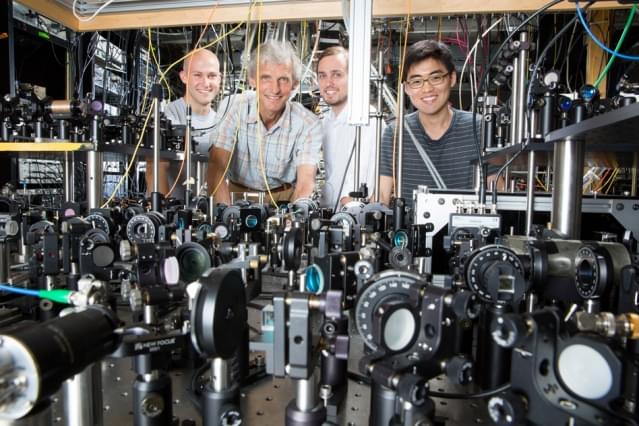Read more about Relativistic drag predicted by Einstein is confirmed.




With the help of NASA and Japan, Uganda has officially become a spacefaring nation — and its newly-launched PearlAfricaSat-1 craft has some pretty nifty tech onboard.
As the Uganda-based Nile Post reports, the satellite launched out of NASA’s Mid-Atlantic Regional Spaceport facility in Virginia on the morning of November 7 will not only provide important agricultural and security monitoring features for the developing nation, but will also conduct experiments involving the 3D printing of human tissue.
Per the Ugandan news site, the tissues printed on PearlAfricaSat-1 will be used in research into the effects microgravity has on ovary function — and as Quartz notes in its write-up of the NASA and Japan-supported mission, the microgravity aspect of the experiments is key because “bioprinting” human organs is difficult to achieve with Earth’s gravity.

Circa 2016 face_with_colon_three
A transistor laser (TL)1,2,3, having the structure of a transistor with multi-quantum wells (MQWs) near its base region, bridges the functionality gap between lasers and transistors. From a TL, an electrical signal can be outputted simultaneously with a light signal by inputting one electrical signal, making it suitable for future high performance optoelectronic integrated device applications4. As a new kind of semiconductor laser or transistor, TLs have aroused many interests since its invention. For example, in 2006, the paper2 reporting the first room temperature operation of TLs was voted as one of the five most important papers published by Applied Physics Letters in over 40 years5. Because of the transistor structure, many interesting characters have been demonstrated, including resonance free frequency response, large direct modulation band width6, voltage controlled mode of operation7, low relative intensity noise (RIN) close to the shot-noise limit8 and low 3rd order intermodulation distortion (IMD)9.
However, light emission for all the TLs reported up to now is produced at the expense of current gain. Taking npn TLs as an example, in the devices, electrons injected from the emitter into the base layer first recombine with holes radiatively before the left being collected by the collector4. The majority of the electrons are consumed by stimulated light emissions, leading to a current gain which is a lot lower than the gain of a traditional transistor. The common emitter (CE) mode current gain (collector current/base current) is lower than 5 for most, if not all, of the TLs studied, either experimentally1,2,3,6,7,8,9,10 or numerically11,12,13. The low current gain may limit the performance of systems that use TLs. For example, it is much easier to integrate monolithically a heterojunction bipolar transistor (HBT) and a TL than to integrate an HBT with a laser diode (LD) because of the dual functionality of TLs. For such applications, a large current gain of TL (used as HBT) is desired for the amplification of electrical signal to drive the laser.
In this work, we propose a novel TL structure which has an n-doped InP layer inserted in the emitter ridge, forming a flow aperture in the center of the emitter ridge for only holes. Here after, the TLs having the hole current aperture is designated as a-TLs. The properties of the a-TLs are systematically studied numerically. It is shown that while the light emission power of a-TLs is comparable with that of TLs without the aperture at the same base current, the CE current gain of a-TLs can be over 15 times larger.

Organic electronic-based gas sensors hold great potential for portable healthcare-and environment-monitoring applications. It has recently been shown that introducing a porous structure into an organic semiconductor (OSC) film is an efficient way to improve the gas-sensing performance because it facilitates the interaction between the gaseous analyte and the active layer. Although several methods have been used to generate porous structures, the development of a robust approach that can facilely engineer the porous OSC film with a uniform pore pattern remains a challenge. Here, we demonstrate a robust approach to fabricate porous OSC films by using a femtosecond laser-processed porous dielectric layer template. With this laser-assisted strategy, various polymeric OSC layers with controllable pore size and well-defined pore patterns were achieved.



Circa 2015 face_with_colon_three
MIT physicists have created a superfluid gas, the so-called Bose-Einstein condensate, for the first time in an extremely high magnetic field. The magnetic field is a synthetic magnetic field, generated using laser beams, and is 100 times stronger than that of the world’s strongest magnets. Within this magnetic field, the researchers could keep a gas superfluid for a tenth of a second—just long enough for the team to observe it. The researchers report their results this week in the journal Nature Physics.
A superfluid is a phase of matter that only certain liquids or gases can assume, if they are cooled to extremely low temperatures. At temperatures approaching absolute zero, atoms cease their individual, energetic trajectories, and start to move collectively as one wave.
Superfluids are thought to flow endlessly, without losing energy, similar to electrons in a superconductor. Observing the behavior of superfluids therefore may help scientists improve the quality of superconducting magnets and sensors, and develop energy-efficient methods for transporting electricity.

Astronomers have detected an enormous extragalactic structure hiding in an uncharted region of space far beyond the Milky Way ‘s center.
This phantom region, known as the zone of avoidance, is a blank spot on our map of the universe, comprising somewhere between 10% and 20% of the night sky. The reason we can’t see it — at least with standard visible light telescopes — is because the Milky Way’s bulging center blocks our view of it; the center of our galaxy is so dense with stars, dust and other matter that light from the zone of avoidance gets scattered or absorbed before reaching Earth’s telescopes.
However, researchers have had better luck uncovering the zone’s secrets with telescopes that can detect infrared radiation — a type of energy that’s invisible to human eyes, but powerful enough to shine through dense clouds of gas and dust. Infrared surveys of the zone of avoidance have found evidence of thousands of individual galaxies shining through the cosmic fog, though little is known about the large-scale structures that lurk there.

Researchers revealed why cancer cells require proteins that fix copper ions in order to develop and spread throughout the human body. Possible novel treatment targets have been discovered as a result of recent research on the connections between proteins and how they bind to metals in cancer-related proteins.
Small amounts of the metal copper are required by human cells to perform essential biological functions. The conclusion drawn from studies demonstrating higher copper levels in tumor cells and blood serum from cancer patients is that cancer cells require more copper than healthy cells. Additionally, more copper-binding proteins are active when copper levels are higher. “Therefore, these proteins are highly important to study when it comes to understanding the development of cancer and deeper knowledge about them can lead to new targets for treatment of the disease,” said Pernilla Wittung-Stafshede, Professor of Chemical Biology at Chalmers University of Technology, Sweden.
Most cancer-related deaths are due to the fact that metastases — secondary tumors — form in several places in the body, for example, in the liver or lungs. A protein called Memo1 is part of the signaling systems that cancer cells use to grow and spread around the body. Previous research has shown that when the gene for Memo1 is inactivated in breast cancer cells, their ability to form metastases decreases. A research group from Chalmers wanted to take a closer look at the connection between Memo1 and copper. In a new study published in the scientific journal PNAS, the researchers examined the Memo1 protein’s ability to bind copper ions through a series of test tube experiments. They discovered that the protein binds copper, but only the reduced form of copper. It is this form of copper ions that is most common in living cells. It’s an important discovery because reduced copper, while it is needed in the body, also contributes to redox-reactions that damage — or even kill — the cells.